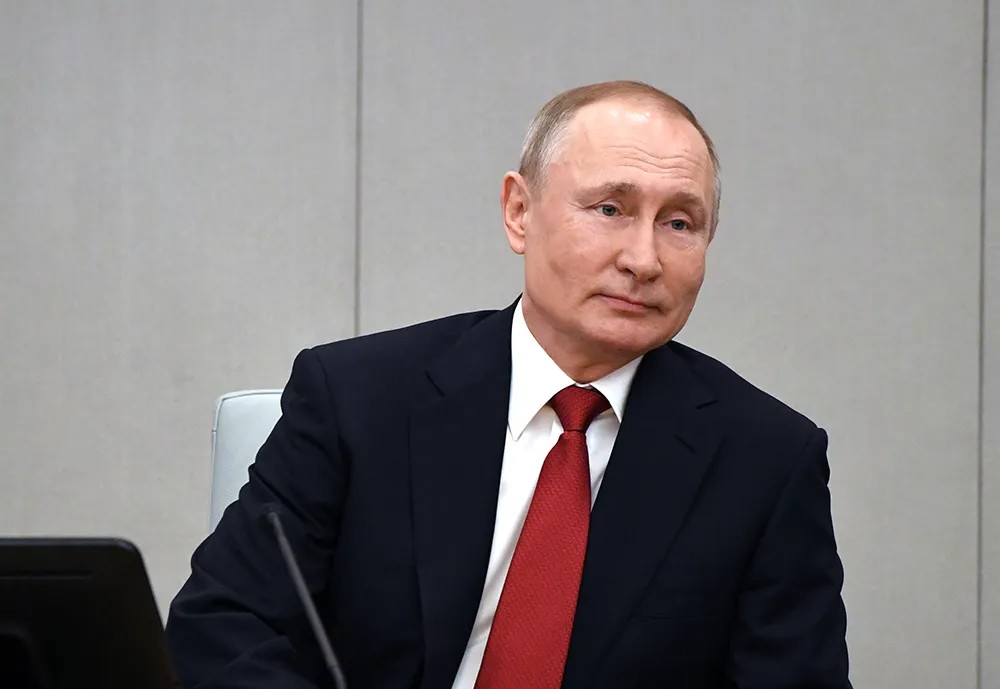
This Week’s Highlights
Putin’s makes a surprise speech at the Russian Parliament that changes the face of the ongoing Constitutional reforms; the ruble goes into free fall after Russia quits the OPEC+ deal; Putin and Erdogan agree on a ceasefire in northwestern Syria; plus Russian feminists try to restore the real meaning of International Women’s Day and coverage of the MH17 trial from our correspondent on the ground in the Hague.
Want to get the full story? Click the links below for full-length articles in Russian.
New feature! Russia, Explained Audio Briefing. Also available on Apple Podcasts and Google Podcasts!
Putin 2036, Explained
A last-minute move has set the path for extending Putin’s rule until 2036. The Russian President made a surprise stop-in at the Parliament on March 10 to deliver a speech that would finally clarify his plans after the end of his “final” presidential term. Long story short? He’s lining himself up to stay in power for two more terms, by supporting a last-minute constitutional amendment from his ruling party, which would reset his presidential term clock to zero once the changes to the Russian Constitution go through.
Change of plans. Putin’s original plan for the constitutional changes was a staged game with multiple steps and various moving parts, including talk of snap parliamentary elections, relaxing presidential term limits and an odd mix of conservative initiatives to distract the public. But you can scrap all of that now, says our politics editor Kirill Martynov. Amid mounting crises provoked by the global COVID-19 outbreak and financial instability, Putin is making a push for a more straightforward constitutional power-grab, insisting that this is not the time for a transition of power. The State Duma approved the amendment that same day, but it still needs to be cleared by the Constitutional Court (a mere formality).
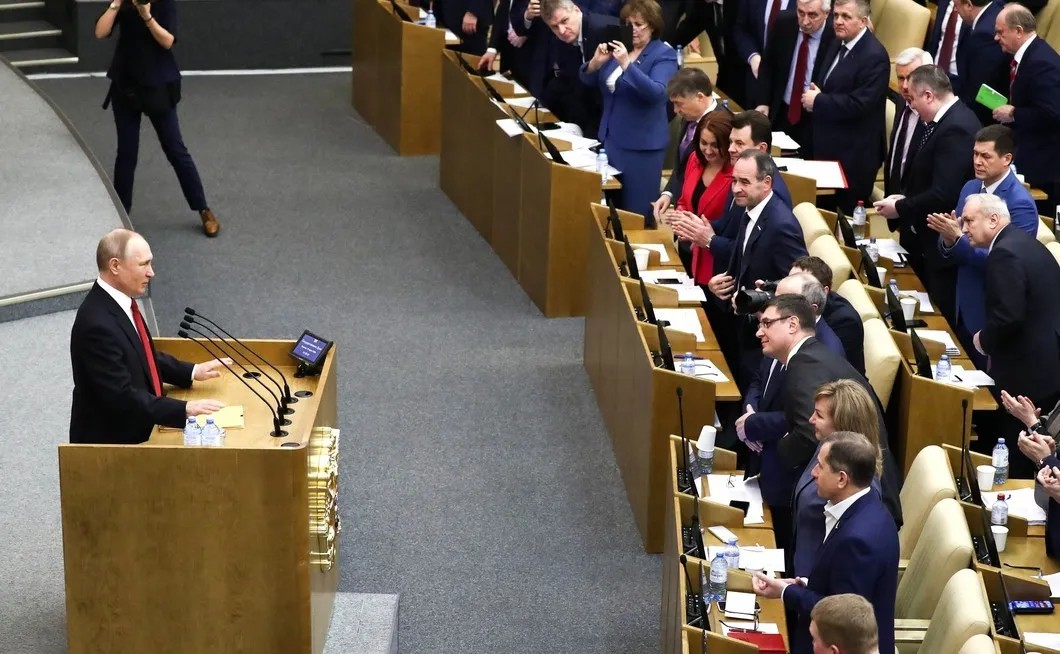
“At this moment the Russian Federation, as it was conceived in 1993, is ‘nullified’,” Martynov says.“The Kremlin no longer has any Constitutional complexes; Putin is ready to stay in his post as long as he sees fit and he himself will appoint the judges to the Constitutional Court.” The way Martynov sees it, this latest move renders the entire overhaul of the Russian Constitution meaningless. “Counting presidential terms no longer makes any sense, nor does the ‘constitutional reform’ itself, which was originally thought up as a complex and elegant way to resolve the Kremlin’s 2024 problem,” he explains. “Now they decided not to complicate things […] The President simply isn’t going anywhere.”
Read politics editor Kirill Martynov’s full take on Putin’s Duma speech here.
The Ruble’s Fall, Explained
The global collapse of oil prices sent the ruble into a free fall this week, with the Russian currency hitting a four-year low on Monday. But coronavirus-induced financial panic is just one part of the story and many are still scratching their heads over why Moscow would choose to exacerbate economic fallout by killing a key OPEC+ deal. Have no fear – we’ve got you covered.
OPEC+ breakdown.On March 6, the OPEC+ group (made up of states belonging to the International Organization of Petroleum Exporting Countries, plus non-member countries, like Russia) decided to reduce production in response to depreciating oil demand. Russia reacted by not only rejecting the proposal but also announcing that it will stop cooperating with OPEC as of 1 April. In a domino effect, coordination between the other member countries broke down, triggering a further plunge in global oil prices and massive devaluation of Russia’s currency.
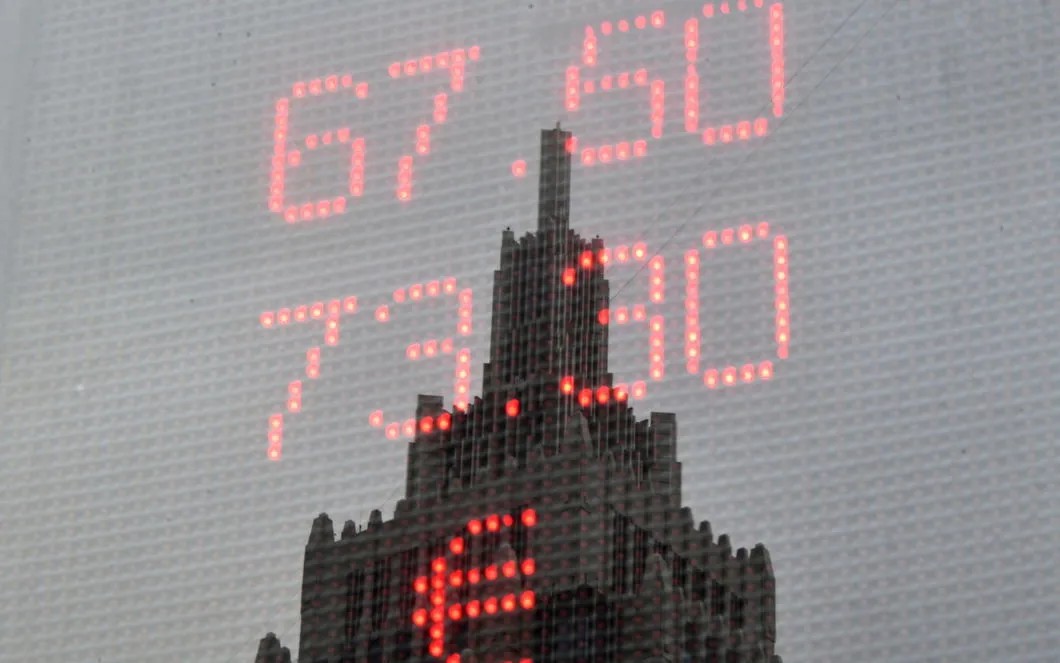
Why would Russia do this?Despite Russia’s entire economy relying heavily on export revenues from oil and gas, the Kremlin has only recently started to gain its own clout in the global oil market. As a result, cooperation with OPEC (launched in 2016) had become quite limiting for Moscow and the current crisis presented a perfect opportunity for a quick exit. The way economist Maxim Averbukh sees it, Russia is far too oil-dependent to reduce production and would rather rely on its financial reserves than cut back for the benefit of other countries. “Russia does not believe that it ‘shot itself in the foot’,” Averbukh explains. “Apparently, there are more important things than the price of oil.”
Budget at risk.That said, this is all bound to impact the country’s budget for 2020, which has an oil benchmark of around $42 a barrel. “This rate can’t exactly be called comfortable for Russia,” warns analyst Dmitry Marinchenko. However, the Ministry of Finance claims that Russia’s National Wealth Fund has enough money to cover budget losses for the next 6 to 10 years, even if the price of oil drops to $25-30 per barrel.
Read Maxim Averbukh’s full take on Russia’s exit from OPEC+ here.
Поддержите
нашу работу!
Нажимая кнопку «Стать соучастником»,
я принимаю условия и подтверждаю свое гражданство РФ
Если у вас есть вопросы, пишите [email protected] или звоните:
+7 (929) 612-03-68
Putin and Erdogan’s Latest Ceasefire, Explained
Russian President Vladimir Putin and Turkey’s President Erdogan have finally halted the recent escalation in Syria. After nearly six hours of negotiations in Moscow on March 5, Putin and Erdogan agreed to a lackluster truce along the existing contact line in the northwestern Syrian province of Idlib. But their latest ceasefire is unlikely to hold for long.
Don’t get your hopes too high.“There’s no agreement on the separation of parties, on establishing demilitarized zones or the presence of any monitors for the ceasefire,” underscores Novaya Gazeta columnist Pavel Felgenhauer. “By definition, this kind of truce can’t last long.”
Temporary compromise.Felgenhauer believes that the two sides came to an agreement because both Moscow and Damascus are running out of steam: “It seems that the Turks do not intend to go any deeper into Syria, but they are also not going to withdraw their troops from Idlib,” he explains. “Neither the [Syrian Army], its allies, nor the Russian forces are able to force the Turks to leave or clear the armed opposition out of Idlib, so long as they have Turkish rocket artillery and air support.”
It won’t end the refugee crisis either.“The latest military operation did not create a new stream of refugees, but simply laid the foundation for clever manipulation,” says our award-winning war correspondent Wadih El Hayek. He’s reporting from Turkey’s southern border with Syria where the refugee population on both sides adds up to an estimated total of one million people. Following Erdogan’s announcement that Turkey had decided to open its borders, thousands of migrants fled to European checkpoints. But according to El Hayek, most of these people are refugees who have been living in Turkey for years and this is just Erdogan’s latest attempt to put pressure on the EU. “Nobody is interested in refugees, [but] everyone is interested in how they can use them in their political game,” he says.
Read more analysis on the ceasefire from Pavel Felgenhauer here, plus Wadih El Hayek’s dispatch from the Turkish-Syrian border here.
Russian Feminists Take Back International Women’s Day
On March 8, the world marked International Women’s Day – which in Russia has become an occasion that’s a lot like Valentine’s Day in the West. Nevertheless, embattled Russian feminists are trying to reclaim it.
Hijacked IWD. “At the beginning of the century, this holiday was invented to talk about the struggle for women’s rights,” explains feminist activist and historian Ella Rossman in an op-ed for Novaya Gazeta. “A century later, having gone through more than one conservative turn in family and gender policy […] it has turned into a day of ‘spring, love and beauty’ in our country.” The way Rossman sees it, Russia has popularized a commercialized version of Women’s Day, which only serves to reinforce stereotypes about women.
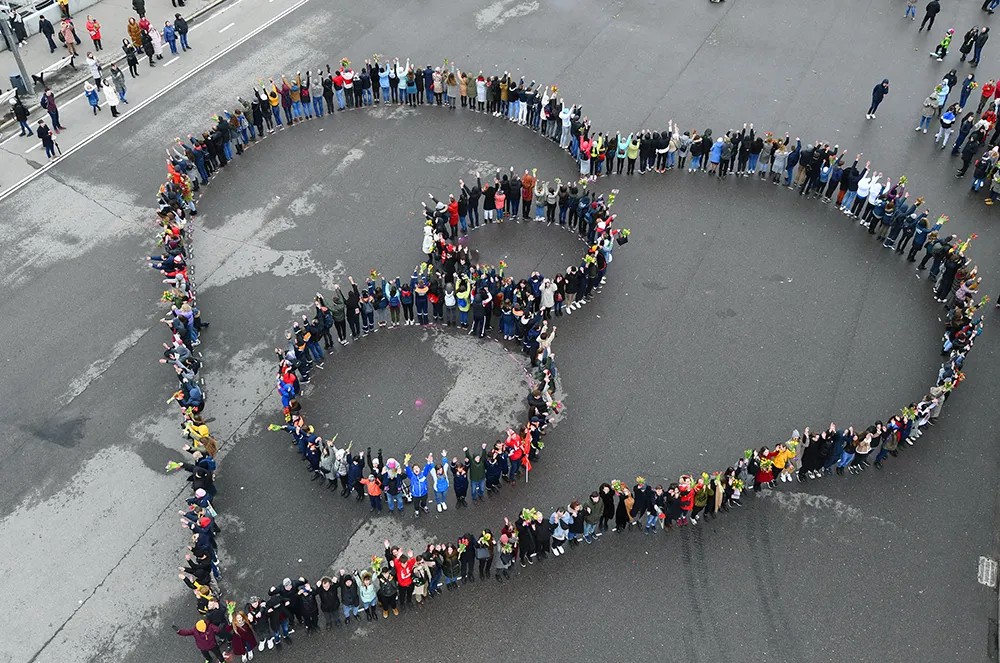
“There really are a lot of feminist groups in Russia,” Rossman says. “Last year, for example, feminist events took place in over 30 cities, from Kaliningrad to Komsomolsk-on-Amur.” Since 2019, Rossman has been working to compile digests of feminist events that have taken place across the country, to highlight the fact that they are widespread. “This year, the geography of the ‘feminist [month of] March’ has expanded even further. Moreover, I feel that the most interesting events are now taking place not in the capitals but in the regions.”
Rising backlash, too. This year’s feminist events tended to focus on themes related to endemic domestic violence . But Russia’s feminist activists are likely to experience trauma on another level, too – at the hands of the state. “Since last March we have had at least two feminist activists who have been persecuted for political reasons,” Rossman recalls. Meanwhile, some feminist activists have shied away from raising topics related to LGBTQ rights, for fear of persecution under Russia’s “gay propaganda” laws.
Read Ella Rossman’s full op-ed on “The Other March 8th” here.
Other Top-Stories Russia Has Been Reading
- Cadet school controversy.Our most-read story this week was an article about a top student who was dismissed from the Investigative Committee’s Cadet Corps, after a video surfaced showing three cadets mocking a fourth student. The student in question, a tenth grader named Varvara, was expelled without any procedure and her grandmother’s complaints were dismissed. Meanwhile, some are speculating that she was actually turned out to free up a spot at the prestigious school. A Cadet Corps education is in high demand, since it promises students social mobility, especially when it comes to future careers in law enforcement.
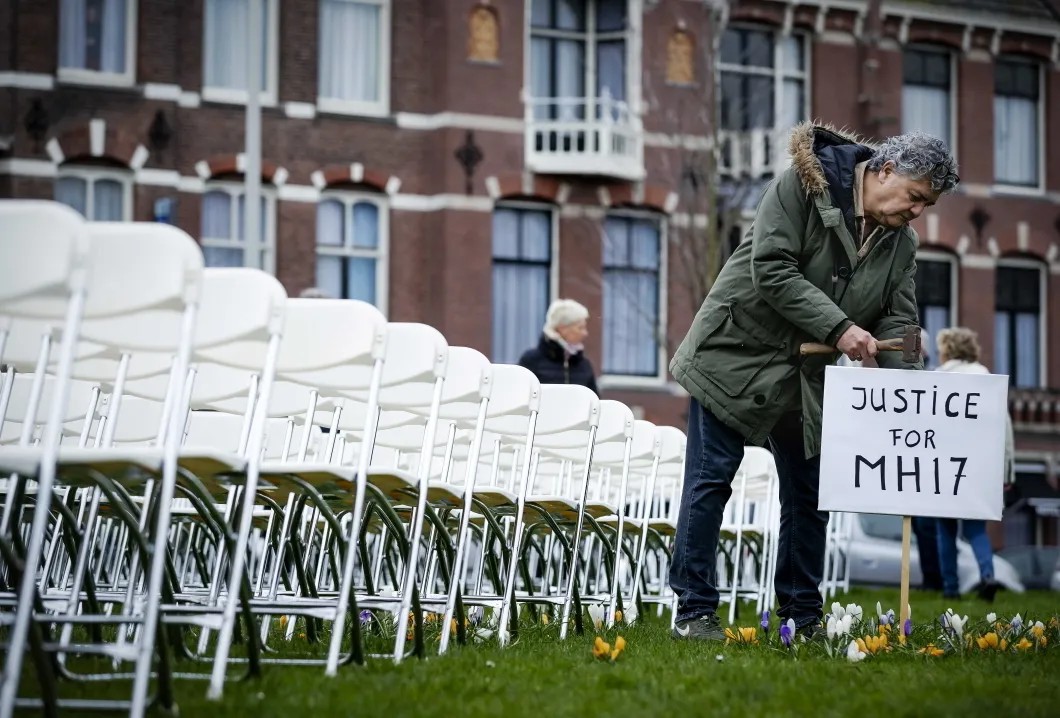
- MH17 trial begins. The Kremlin is silent.We are on the ground in the Netherlands, covering the MH17 trial. The day before the first hearing, relatives of the victims held a silent protest outside of the Russian Embassy in the Hague. On the lawn outside of the building, they hung a banner that read “Humanity before Politics” and set up 298 empty chairs, each one symbolizing a victim of the tragedy. Going into the trial, Jerry Skinner, an American lawyer representing the 40 families of the deceased in the lawsuit against Russia and President Putin at the European Court of Human Rights, is sure that the Kremlin will keep up the defense it has used since 2014. “Russia’s position will be the usual: we didn’t do this and you can’t prove it,” he told reporters. “Unfortunately for them, in this particular case, many [people] saw the perpetrators, many recorded them, many overheard them, and they themselves left behind physical evidence.”
Thanks for reading! To keep up with Novaya Gazeta’s reporting throughout the week, you can follow us on Facebook, Twitter, Instagram and Telegram. Our video content is available on Youtube and don’t forget to visit our website for the latest stories in Russian. Until next time!
— The Novaya Gazeta Team
Поддержите
нашу работу!
Нажимая кнопку «Стать соучастником»,
я принимаю условия и подтверждаю свое гражданство РФ
Если у вас есть вопросы, пишите [email protected] или звоните:
+7 (929) 612-03-68